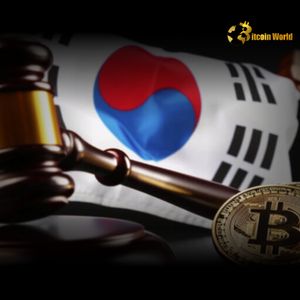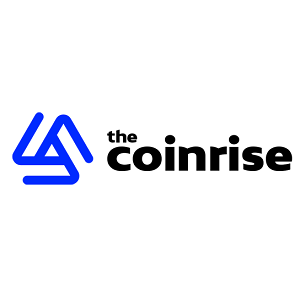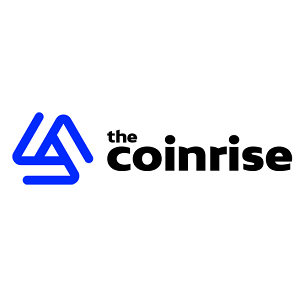South Korea Crypto Exchanges: Urgent Need for Clear Listing Rules Sparks Concern
4 min read
BitcoinWorld South Korea Crypto Exchanges: Urgent Need for Clear Listing Rules Sparks Concern Hey there, crypto enthusiasts! Ever wondered how your favorite digital assets end up on major exchanges, or worse, get removed? It turns out that in the world of South Korea crypto exchanges , this crucial process has been shrouded in a bit too much mystery. A recent exclusive report by NewsPim has pulled back the curtain, revealing that the committees responsible for deciding which tokens get listed or delisted have been operating without clear standards or much transparency. This isn’t just a technical detail; it has real implications for both token projects and, more importantly, you, the investor. Why Transparency in Crypto Listing Rules Matters Think about it: when you invest in a cryptocurrency, you trust the exchange to provide a fair and stable trading environment. The decision to list a new token or remove an existing one (often called token delisting ) is one of the most powerful actions an exchange can take. Without clear rules or insight into *why* these decisions are made, it creates uncertainty and potential for unfair practices. Here’s why this lack of clarity is a big deal: Investor Confidence: Opaque processes erode trust. If investors don’t understand the criteria for listing or delisting, they might fear arbitrary decisions that could suddenly impact their holdings. Market Integrity: Clear rules help prevent manipulation or favoritism. Everyone should ideally know the ‘rules of the game.’ Protecting Innovation: For legitimate token projects, a clear path to listing and understanding delisting risks is vital for growth and access to capital. The report specifically highlights that these review committees, even within the Digital Asset eXchange Alliance ( DAXA ), haven’t had formal, transparent processes in place. What Has DAXA Been Doing About It? In response to growing concerns and likely anticipation of increased regulatory scrutiny, DAXA , an alliance comprising South Korea’s major crypto exchanges (like Upbit, Bithumb, Coinone, Korbit, and Gopax), has taken steps to address the issue. They recently amended their rules with the stated goal of strengthening oversight on listing and delisting procedures. However, there’s a catch: these revised provisions aren’t effective immediately. They are set to take effect starting June 1. This means there’s still a period where the older, less transparent practices might technically still be in play, although the increased attention might already be pushing exchanges towards better practices. Are the New Crypto Listing Rules Enough for Investor Protection ? While DAXA ‘s move to amend rules is a step in the right direction, industry insiders and experts remain cautious. The core issues raised by the NewsPim report – opaque decision-making procedures and the refusal to disclose key information – need direct and effective solutions. Experts emphasize that for true investor protection , the changes need to go beyond just amended rules on paper. Exchanges must: Clearly define the criteria used for both listing new tokens and reviewing existing ones for potential token delisting . Make these criteria publicly accessible. Establish a formal, transparent process for reviews, perhaps including a mechanism for projects to understand concerns or even appeal decisions. Disclose the reasons behind specific listing or delisting decisions, while respecting sensitive business information where necessary. Without these fundamental changes, the risk of legal disputes remains high. Token issuers who feel unfairly treated due to a lack of a formal, understandable review process could challenge exchange decisions in court, creating further uncertainty in the market. The Risks of Opaque Token Delisting The threat of arbitrary token delisting is particularly concerning for investors. Unlike traditional stock markets where delisting usually involves significant public announcements and regulatory oversight, the crypto space can sometimes see tokens removed with little warning or clear explanation. This can lead to sudden price crashes as investors rush to sell, often without a clear understanding of *why* the token was delisted. Stronger, more transparent rules around this process are crucial to prevent investor harm. Looking Ahead: What Needs to Happen? The situation in South Korea crypto exchanges highlights a global challenge in the rapidly evolving digital asset market. While self-regulation through bodies like DAXA is important, the effectiveness hinges entirely on the commitment to genuine transparency and putting investor protection first. The upcoming Virtual Asset User Protection Act in South Korea, set to take effect in July 2024, is expected to bring more regulatory clarity, which might further push exchanges towards standardized and transparent practices. Ultimately, the goal should be a market where listing and delisting decisions are based on clear, objective criteria that everyone can understand, fostering trust and stability for all participants. To learn more about the latest South Korea crypto regulation trends, explore our article on key developments shaping the crypto market. This post South Korea Crypto Exchanges: Urgent Need for Clear Listing Rules Sparks Concern first appeared on BitcoinWorld and is written by Editorial Team

Source: Bitcoin World



